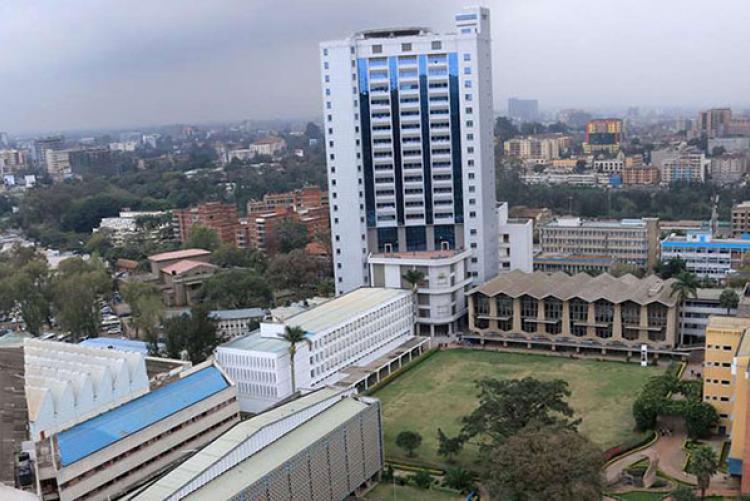We need to champion innovativeness and research, good scientific disciplines utilize science and research outputs in the application of knowledge and how we can use research to attain international development goals and vision. This were the sentiments that were emphasized in the 3day research conference. This was the 4th Annual Conference of the Faculty of Science and Technology under the overall title of ‘Science Outputs for Addressing Grand Societal Challenges for Transformational Impacts’
During the opening ceremony the vice-chancellor Prof. Kiana noted on the need for academic centers of excellence, such as we have in the university, to take measures to ensure that the Kenyan society has the research information it needs to support decisions which lead to improved socio-economic welfare. ‘’ time has come for the research output of the university, to anticipate issues and episodes beyond our current knowledge and indeed prepare society to deal with new challenges. The Vice Chancellor said
There was presentation of powerful key note presentations and over 20 paper presentations from students. All the key note speakers emphasized n the need for Africa to do more research. Dr. Mukabana noted Africa contributes to only 1% of the world’s research output. This is mainly due to Inadequate funding of science research including weather and climate research by governments in Africa, Inadequate research infrastructure and Weak linkage between climate science and policy.
Prof. George Karani from Cardiff Metropolitan University spoke candidly on 'Experiences and lessons for Africa and Kenya for healthier people to steer sustainable development. He emphasized on the need to use the challenges and successes of MDG's as lessons for sustainable development goals. Also there the need for policy makers to create interactions around the 169 targets in the 17 SDG’s. he also noted on the need to partner together in order to realize SDG's. ‘’Start small grow together and share equally the outcomes’’ he said. Prof Karani concluded by reminding the audience the SDG’s aim of 'leaving no one behind' by 2030 will depend on our present actions or non-actions
All the paper presentations were centered on 5 subthemes; Science, Technology and Innovation in Industry for Sustainable Socio-Economic Transformation, Accelerating Sustainable Universal Health Care through Advances in Scientific Research, Technology and Innovation, Promoting Collaborative Scientific Research, Technology and Innovation for Sustainable Utilization of Natural Products, Scientific Research, Technology and Innovations for Sustainable Food Production, Management of Emerging Calamities, Diseases and Pests and Research Outputs and Applications from the Basic Sciences and Practices
This was the 4th Research week since its inception in 2018 and this was the second time the conference was being held virtually.
- Log in to post comments

